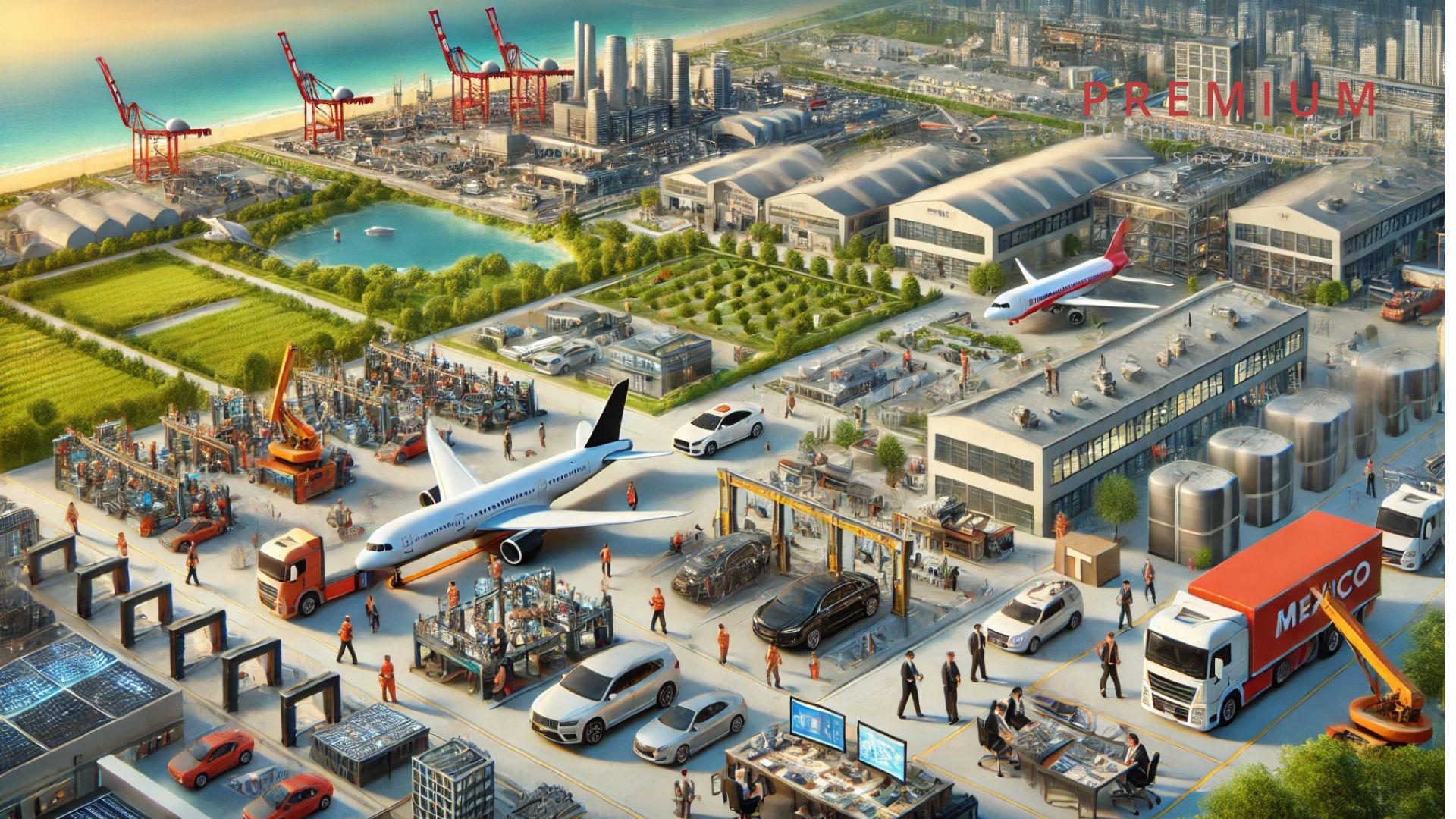12-Mar
The nearshoring trend is rapidly transforming Mexico’s economic landscape, positioning the...
Nearshoring in Mexico: Key Industries and the Role of Real Estate Development
The nearshoring trend is rapidly transforming Mexico’s economic landscape, positioning the country as a prime destination for foreign investments and fostering the growth of various industries. By leveraging its geographic proximity to the United States, qualified workforce, and competitive costs, Mexico has attracted numerous businesses looking to streamline their operations and reduce logistical complexities. This influx of investments has spurred growth across several sectors, including the automotive, aerospace, and information technology (IT) industries, creating a domino effect that extends into real estate development and infrastructure.
Key Industries Driving Nearshoring in Mexico
One of the standout sectors benefiting from nearshoring is the automotive industry. For years, Mexico has been a top supplier of auto parts to the United States, with a steady increase in production and export volumes. Recent data shows that Mexico’s share in U.S. auto parts imports has grown to 46%, reflecting a consistent demand for Mexico’s production capabilities and supply chain efficiency. This sector not only provides economic growth but also generates employment opportunities and upskills the workforce in manufacturing and engineering.
Another burgeoning industry is aerospace, which has seen rapid growth in recent years. The aerospace sector in Mexico is expected to grow by 15-20% annually over the next four to five years, driven by Mexico’s strategic position and skilled labor force. This growth aligns with global trends, as high-tech companies increasingly seek partners or suppliers in Mexico to meet demand. With companies continually establishing operations in Mexico, the aerospace industry plays a crucial role in the broader success of nearshoring.
The IT sector has also gained traction, with Mexico’s youthful and skilled workforce appealing to companies in need of software development and digital transformation services. As digital adoption rises, so does the demand for technology solutions in areas such as artificial intelligence (AI), the Internet of Things (IoT), and big data. These technologies enable companies to enhance operations, optimize resources, and make better decisions, reinforcing the value of nearshoring in a highly competitive global market.
The Role of Real Estate Development in Supporting Nearshoring
The success of nearshoring initiatives depends not only on industry expertise but also on infrastructure that supports business operations and workforce needs. Real estate developers are essential in this process, providing modern, efficient facilities like office spaces, industrial parks, and warehouses tailored to the needs of nearshoring businesses. As companies enter Mexico, these real estate spaces must accommodate cutting-edge technology, high-security standards, and a flexible environment that caters to the demands of various sectors.
An emerging trend within real estate development involves creating flexible office solutions. These range from co-working spaces to private offices designed to meet the diverse requirements of companies relocating to Mexico. Many real estate projects are also incorporating sustainable practices, with certifications like LEED, to attract businesses committed to environmental responsibility.
Furniture Rental Services as a Strategic Solution
To further support nearshoring growth, furniture and appliance rental companies have become valuable partners in developing efficient, adaptable workplaces. By offering fully furnished spaces, these companies enable nearshoring firms to establish operations quickly, minimizing initial setup costs and timelines. This flexibility allows businesses to focus on their core activities without the logistical complexities of equipping an entire workspace.
The option to rent furniture and appliances provides a level of adaptability that aligns with the evolving needs of companies, whether they are launching short-term projects or establishing long-term operations. Additionally, rental services contribute to sustainability by reducing waste associated with single-use furnishings, supporting the eco-friendly goals of both businesses and real estate developers.
The nearshoring trend is driving Mexico’s economic growth, especially in sectors like automotive, aerospace, and IT. Real estate development plays a pivotal role in supporting this trend by offering flexible and sustainable infrastructure, while furniture rental services enhance business adaptability. Together, these elements create a robust ecosystem for nearshoring success, positioning Mexico as a strategic hub for international businesses.


